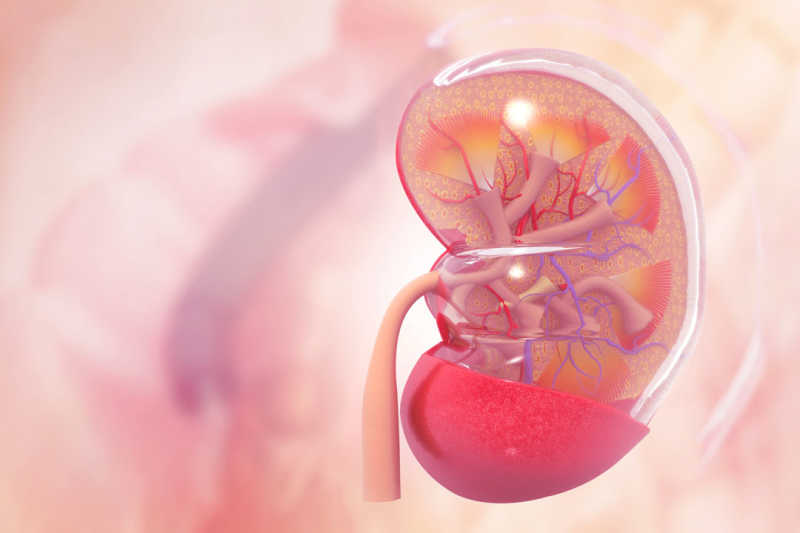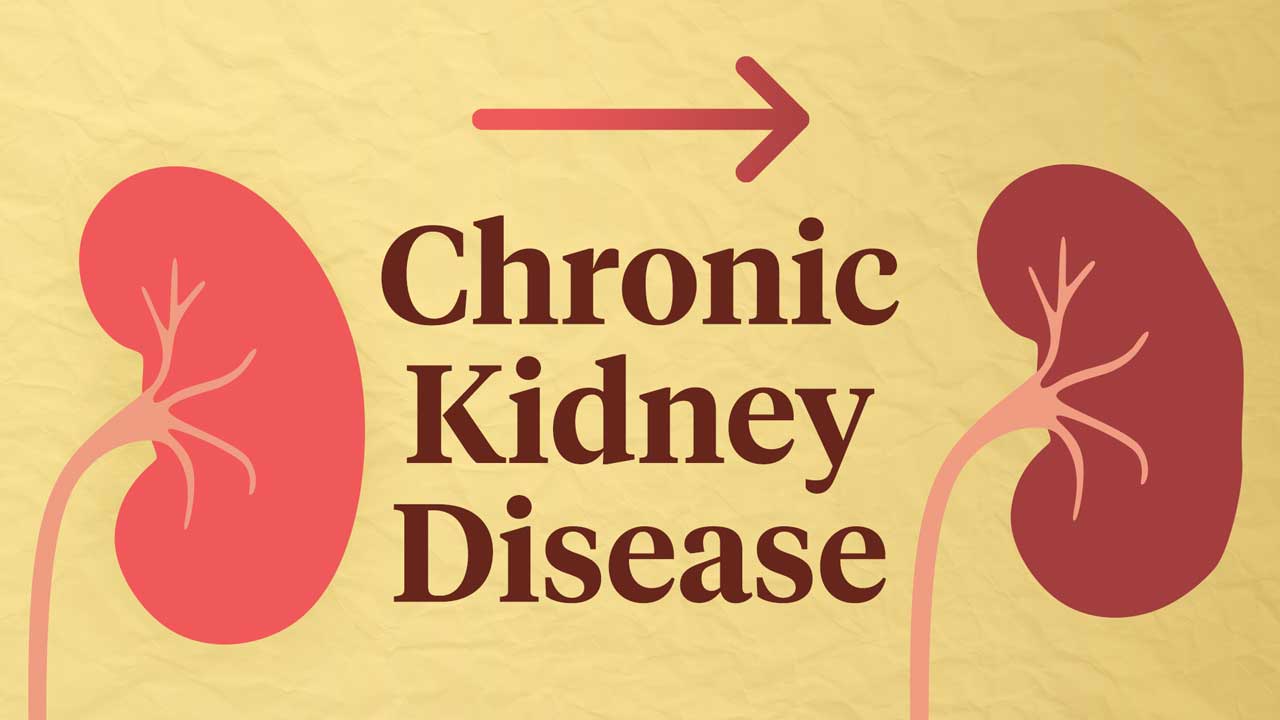Symptoms of kidney Failure – Human body is made of different organs and other components. Each component of the human body performs specific tasks to keep everything working and keep the body healthy. If one thing starts to perform irregularly or fails to perform any task, then it can destroy the whole system, and the person might die.
Yes, there is a possibility that due to some reasons, your body organs might stop responding, and it is known as organ failure. It can happen to any organ in the body, including the heart or kidney. Today, we are here to talk about everything related to kidney failure.
We will also talk about everything regarding the situation, including symptoms of kidney failure and its diagnosis. Lastly, we will also take a look at its treatment options and how you can prevent kidney failure.
The Centers for Disease Control and Prevention believe 90% of people who are struggling with chronic kidney diseases don’t even know they have it.
What is Kidney Failure?
Every healthy human on this earth has two kidneys. A kidney failure means one or both kidneys are no longer functioning well on their own. Kidneys are there to filter out your blood and remove all toxins from your body. Once the kidney has removed all the toxins from your blood, it will be sent to your bladder simultaneously, and you can later eliminate it through urine.
Kidney failure is a serious situation where your kidneys will no longer be able to filter out the waste from your blood on their own. There could be a huge number of factors of kidney failure. There are some treatment options available for kidney failure, including dialysis and kidney transplants.
Causes of Kidney Failure
Before we discuss the symptoms or the treatment options for kidney failure, let’s take a look at the Causes of kidney failure. It is easier to prevent it than treatment.
If you are struggling with any of the below-given symptoms of kidney failure, it doesn’t mean that you actually have kidney failure. Many of these symptoms can also be associated with other diseases, and you should always go for a professional opinion before self-diagnosis.
High Blood Pressure
The National Kidney Foundation of the United States believes untreated high blood pressure over a period of time can cause kidney failure. People who are struggling with high blood pressure or hypertension should consult all the possibilities of kidney failure their health care provider.
Over a period of time, hypertension is known to damage kidney tissue. And damaged kidney tissue is known to increase the chances of kidney failure.
Apart from that, some conditions that can cause loss of blood flow to the kidneys can also be the cause of kidney failure. People who are already struggling with the below-given conditions can experience kidney failure.
- Heart attack
- Dehydration
- Heart diseases
- Liver failure
- Severe burns
- severe infection
- Allergic reactions
There are some hypertension and anti-inflammatory medicines that can also result in low blood flow. Even if you are taking medicine for your hypertension, you should be very careful and take a look at all the symptoms of kidney failure.
In case you are experiencing any of the below-given symptoms of kidney failure, then you should consult with your health care provider as early as possible. Kidney failure can be deadly.

Urine Problems
People who are struggling with urine problems can experience kidney failure over a period of time. If your body is not able to eliminate urine out of your body, then the toxins are going to build up in the kidney. Those toxins can result in kidney failure.
The American Cancer Society believes that people who are struggling with cancers like prostate cancer, Colon cancer, cervical cancer, and bladder cancer can experience blockage in urine which can result in kidney failure. If you are struggling with these types of cancers, then you should consult with your health care provider. Apart from that, you can also keep track of your urine elimination.
Apart from cancer, there are some conditions that can also interfere with urination and lead to kidney failure. If you are struggling with any of the below-given conditions, you should also keep track of your urine elimination.
- Kidney stones
- And large prostate
- Blood clots
- Damage to the nerves that control Blender
Other Causes
The National Kidney Foundation of the United States believes there are some other causes that can be the reason for kidney failure. If you are struggling with any of the below-given conditions, then you should consult a kidney failure with that your healthcare provider.
- Blood clots in or around your kidneys
- Heavy metal poisoning
- Infection
- Drugs
- alcohol
- Lupus
- Inflammation of blood vessels
- Multiple myeloma
- Chemotherapy drugs
- Dyes used in some imaging tests
- Certain antibiotics
- Not managed diabetes
Symptoms of Kidney Failure
Once you have understood all the possible causes of kidney failure now, it is time for you to learn about the symptoms.
The National Kidney Foundation of the United States suggests every person who is struggling with any of the above-given conditions to take a deep look at all of the below-given symptoms and consult with their health care provider if they’re struggling with any of them.
There is a really interesting fact presented by the Centers for Disease Control and prevention. The CDC believes 90% of people who are struggling with chronic kidney diseases don’t even know they have it.
If you are struggling with kidney diseases, then you might have below given symptoms.
- Reduce the amount of urine
- Confusion
- Seizures
- Unexplained shortness of breath
- Excessive drowsiness
- Persistent nausea
- Pressure in your chest
- Swelling of your legs, ankles, and feet
As you can clearly see in the above-given list, most symptoms of kidney failure are not normal. At the same time, these symptoms don’t build up till you are already at the final stages of kidney failure.
That is why the Centers for Disease Control and Prevention suggest everyone keep an eye on the color of their urine. It is also a great indication of your overall body health. If you are experiencing any of the below-given changes in your urine color, it could be a warning sign, and you should consult with your healthcare Provider.
- Clear to pale color urine indicates that you are well hydrated, and it is the ideal color.
- Dark yellow or amber color means you are dehydrated, and you should drink more water and cut down on dark soda, including tea and coffee.
- The orange color sign is also a sign of dehydration, but it can also be a sign of bile in your bloodstream. Most kidney diseases do not cause orange color urine.
- Pink or red color urine clearly means that you have blood in it. You can get yourself tested if you are experiencing red or pink urine, as it can also be caused by beets and strawberries.
- Urine with excessive bubbles can be a classical sign of kidney disease. It is a sign that you have protein in your urine, and you should get yourself tested.
Diagnosis and Treatment of Kidney Failure
Your doctor can perform different types of tests to diagnose kidney failure or any other kidney disease.
Urine Test
Your doctor can suggest you go for a urine test to check for any atypical protein or sugar that spills into your urine. Apart from that, if you didn’t test it can also help your doctor to check if there are any red and white blood cells or high levels of bacteria in your urine.
Apart from that, your doctor can also measure urine output which is one of the simplest tests to diagnose kidney failure. As you might have already seen in the above-given list of symptoms of kidney failure, the most common symptom of kidney failure is low urine output.
Blood Test
Apart from the urine test, your doctor might also suggest that you go for a blood test. A blood test will help your doctor to measure substances that are available in your blood and filtered by your kidney. Higher levels of blood urea nitrogen and creatinine Can clearly indicate something wrong with your kidneys.
Other Tests
If your doctor is not satisfied with your blood or urine test, then you might also get suggested to take up tests like ultrasound, MRI, or CT scan. These tests are best in class to provide images of your kidneys and urinary tract to identify any type of disease.
Apart from that, your doctor might also suggest you go for tissue samples which can be recommended to examine for unusual deposits, scarring, or infectious organs.
Treatment for Kidney Failure
Before we wrap up this session, let’s take a quick look at the treatment of kidney failure. Your doctor might choose the treatment depending on your condition, and it can be different for each and every person.
One of the most popular treatments for kidney failure is dialysis. A dialysis is a machine that can filter and purify your blood which is the work of the kidney. There are different sizes of dialysis machines available in the market, and depending on your condition, you might be connected to a large machine or portable charter bag.
Apart from that, a kidney transplant is also an option. Once you have a kidney transplant, you might not require any dialysis, but the waitlist for a kidney transplant is huge.
Can diabetes cause kidney failure?
Yes, the national kidney foundation believes diabetes is one of the biggest powers of kidney failure. High blood sugar levels are known to damage tissue around your kidney, and it can result in kidney failure.
